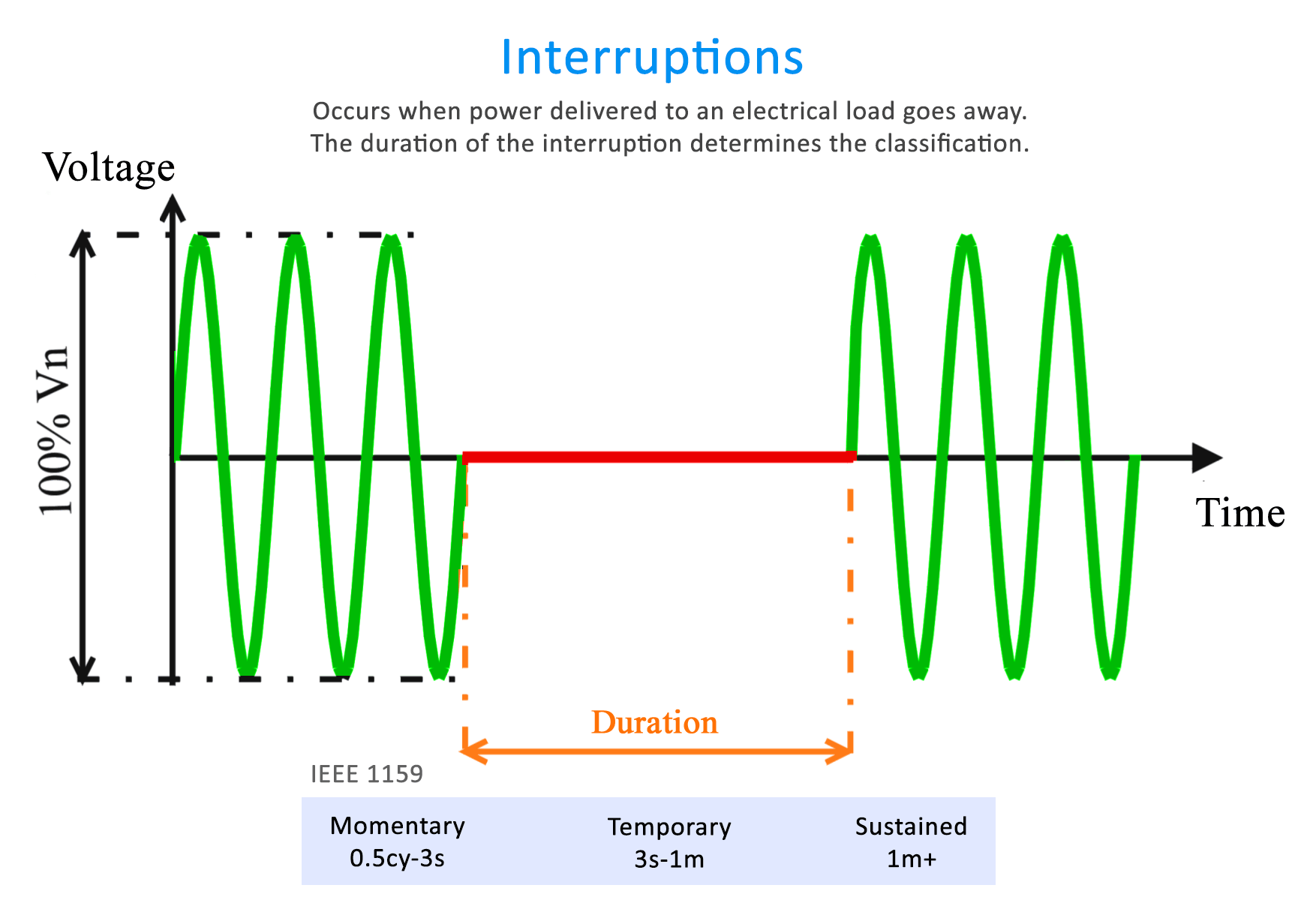One definition is the relative frequency and severity of deviations in the incoming power supplied to electrical equipment from the customary steady 60 Hz sinusoidal waveform of voltage or current. ELECTRICAL POWER QUALITY Lecture Note 1 TERMS AND DEFINITIONS 11 Power Quality There are different definitions for power quality.

Operation of the electric loads without the proper power causes the electrical devices or loads to malfunction fail prematurely or not operate at all.
Power quality in electrical systems. Static Synchronous Series Compensator SSSC is a modern power quality FACTS device that employs a voltage source converter connected in series to a transmission line through a transformer. The SSSC operates like a controllable series capacitor and series inductor. The primary difference is that its injected voltage is not related to the line intensity and can be managed.
The term power quality means different things to different people. One definition is the relative frequency and severity of deviations in the incoming power supplied to electrical equipment from the customary steady 60 Hz sinusoidal waveform of voltage or current. ELECTRICAL POWER QUALITY Lecture Note 1 TERMS AND DEFINITIONS 11 Power Quality There are different definitions for power quality.
According to Utility power quality is reliability. According to load aspect it is defined as the power supplied for satisfactory performance of all equipment ie all sensitive equipment. A power quality PQ problem is defined as any problem that causes voltage current or frequency deviations in the supply and may result in failure or mal-operation of end-user equipment.
It should be noted that in the majority of cases power quality actually refers to the quality of the voltage. The quality of power supply is very important in any power network particularl y to electricity consumers. Electrical Power Systems Quality Third Edition is a complete accessible and up-to-date guide to identifying and preventing the causes of power quality problems.
The information is presented without heavy-duty equations making it practical and easily readable for utility engineers industrial engineers technicians and equipment designers. Electrical Power Systems Quality Second Edition. Electrical Power Systems Quality Second Edition.
Download Full PDF Package. A short summary of this paper. 34 Full PDFs related to this paper.
Introduces the definition of electric power quality its causes and classification. Transients short-duration voltage variations interruptions sags swells long-duration voltage variations sustained interruption under- and over-voltage voltage imbalance waveform distortion DC offset harmonics inter-harmonics non-integer harmonics triplen harmonics sub-harmonics time and space harmonics characteristic and uncharacteristic harmonics positive-negative- and zero-sequence. Although electric power is proportional to both voltage and current in most cases it is the quality of voltage that is being addressed - as the power supply system can only control the quality of the voltage.
Standards in the power quality area are mostly dedicated to maintaining the supply voltage within certain limits. Power quality is a set of electrical boundaries that allows a piece of equipment to function in its intended manner without significant loss of performance or life expectancy. All electrical devices are prone to failure when exposed to one or more power quality problems.
If there is one universal factor that can and will disrupt microprocessor-based controls and cause downtime it is power quality. Since industrial electrical systems frequently experience voltage fluctuations harmonic distortions noise and short- or long-term power outages it is essential to ensure maximum uptime. The term power quality is used to describe the nonstationary disturbances which cause the major malfunctioning of the electrical equipments.
Operation of the electric loads without the proper power causes the electrical devices or loads to malfunction fail prematurely or not operate at all. Electric power quality or simply power quality involves voltage frequency and waveform. A conceptual introductionby Alexandra von Meier.
A Wiley-Interscience publication Includes bibliographical references and index. Title TK1005M37 2006 62131dc22 2005056773 Printed in the United States of America 10 9876 543 21. There are a number of ways in which electric power can be of poor quality.
Improper wiring incorrect grounding and unbalanced loads are just a few examples of conditions that can produce electrical noise through an electrical system and compromise power quality. There is no such thing as perfect power quality in the real world. The Power Quality of a system expresses to which degree a practical supply system resembles the ideal supply system.
If the Power Quality of the network is good then any.